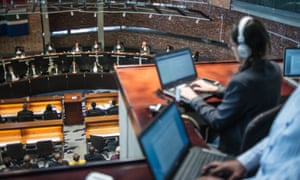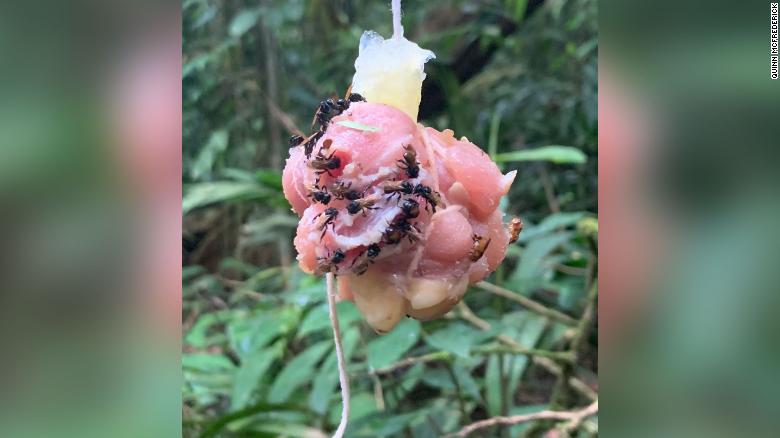It’s not a good look for a young democracy when its president is convicted in the country’s highest court of failing to respect the constitution.
In finding President Jacob Zuma guilty of exactly that on Thursday, and ordering him to pay back state money spent on upgrades to his personal home, South Africa’s constitutional court highlighted just how wayward the country’s under-fire leader has become.
The judgment was unequivocal: “The President has failed to uphold, defend and respect the constitution as the supreme law of the land,” said Chief Justice Mogoeng Mogoeng, delivering the judgement at the court in Johannesburg.
But while the court verdict, delivered unanimously by a full bench, is a damning indictment of the executive, it is also a timely reminder that South Africa’s young democracy is a lot stronger than it is given credit for. Under immense strain, its checks and balances are working.
It’s not just the judiciary that is keeping things on track. The only reason the Nkandla scandal came to light is thanks to the damning report published by public protector Thuli Madonsela in March 2014 – and it is the action recommended in it that Zuma has been found guilty of ignoring.
Another example is last year’s nationwide student protests, under the#FeesMustFall banner. They showed civil society is alive and well in South Africa – and capable of effecting real change. After months of unrest, the department of higher education and training was forced to scrap fee increases which were not only unpopular, but also a clear violation of the spirit of the ruling African National Congress’ commitment to free tertiary education for all.
Take also the furore which followed the abrupt sacking of finance minister Nhlanhla Nene in December. Under immense pressure from all quarters – including other cabinet ministers, party stalwarts, prominent businesspeople, civil society organisations and the media – President Zuma was forced into a humiliating capitulation, eventually reappointing the widely respected Pravin Gordhan to lead the treasury.

Zuma’s close relationship with a prominent Indian business family, the Guptas, has also come under close scrutiny following claims that individuals associated with the family were dictating cabinet appointments. These revelations, and many others about both the Guptas and corruption in government more generally, have come from a fiercely independent media, another pillar of South Africa’s democracy.
It is the judiciary, however, that on Thursday provided the most dramatic check on the president’s power – exactly as it is designed to do. The court ordered Zuma to pay back a portion of the money spent on upgrades to his opulent home at Nkandla in KwaZulu-Natal province, with the amount to be determined by the treasury and approved by the court. It could well run into the tens of millions of rands, money which Zuma may or may not have.
In the same judgment, the court had harsh words for the ruling party-dominated National Assembly, finding that it too had failed to live up to its constitutional obligations. The criticism was fair, however it should be noted that the Nkandla case only reached the constitutional court thanks to applications lodged by the Democratic Alliance and the Economic Freedom Fighters (EFF), the two main opposition parties in parliament.
“Zuma’s journey ends here… Zuma’s case ends here. Anyone who wants to question this matter any further would be questioning the court,” said EFF leader Julius Malema, reacting to the decision.
Ranjeni Munusamy, a political analyst who has written extensively about the Nkandla case, said “it is unprecedented to have the highest court in the land pronounce on the conduct of the head of the executive and on parliament.”
“This leaves South African in an unprecedented space. While the court has spelled out what needs to be done regarding the money spent on Nkandla, it’s unclear whether the president can continue to serve as head of state with any form of legitimacy,” Munusamy said.
This is uncharted territory for South Africa, but if the Nkandla scandal has taught us anything it is that the country’s institutions, as well as the checks and balances built into its constitution, are more than capable of rising to the challenge.




